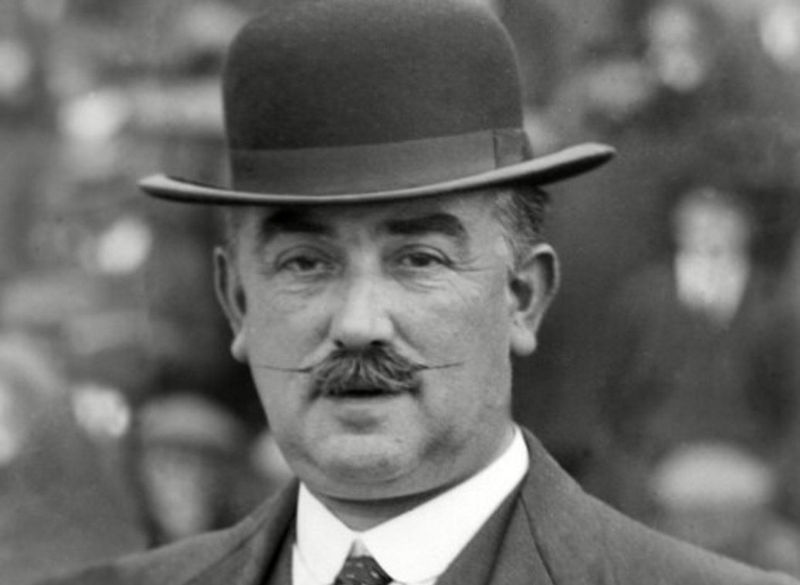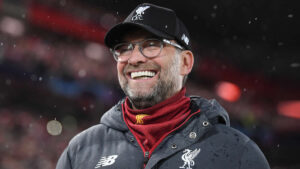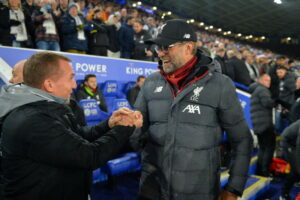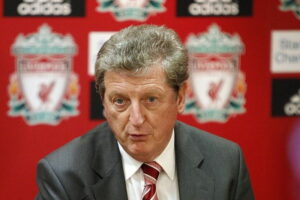
Born in Poulton-le-Fylde near Blackpool on the second of June 1867, although some times erroneously reported as having been born in Waterford, Ireland, David Ashworth was originally a well-known referee in the Football League.
Many modern fans might be forgiven for thinking that there are some referees who behave as though they’re the manager of certain clubs already, but Ashworth genuinely did make the transition from one role in the sport to the other.
He entered management when he took over the role at Oldham Athletic, moving to Stockport County before becoming Liverpool’s manager in 1919.
David Ashworth, one of Liverpool’s first managers. Moustaches don’t get much better than that pic.twitter.com/yyPJcHuIcl
— Talk LFC (@LFC_Pics) April 26, 2013
He won the club’s third top-flight title and was well on his way to adding a fourth when he decided to leave Liverpool in order to return to Oldham, with the club fighting relegation. It left the Reds somewhat in the lurch, but, in spite of the fact that we won just one of our last seven games, we still won the league for the fourth time.
Ashworth, meanwhile, failed to save Oldham from their relegation battle and then moved to Manchester City; leaving Liverpool and ending up at the Etihad being all but unthinkable in the modern era. His career was one that faded away rather than ended with a bang, finishing up as the manager of Walsall.
The Early Years
Born in Blackpool in 1867, Ashworth would go on to spend most of his life ensconced in the north-west of England. The son of publicans in the Poulton-le-Fylde area where he grew up, he moved to live with his grandmother in Newchurch, Rossendale for a time. On the 30th of May 1891, he met and fell in love with Annie Whittaker, later having a daughter.
Ashworth loved association football, enlisting as a referee at the turn of the century. In 1904, he took charge of a match between Liverpool and Burton United in a game that Liverpool won 2-0, but there is no suggestion that the future manager had any influence on the score.
David Ashworth was Oldham Athletic’s 1st ever manager in 1906. He would turn his moustache up or down depending on his teams result #OAFC. Born in Poulton-le-Fylde he also managed #LFC #MCFC #stockportcounty & #Saddlers pic.twitter.com/DyfyrDHrbu
— OAFC Memories🦉 (@oafcmemories) January 3, 2021
Two years later and Oldham Athletic, a side that has previously been known as Pine Villa FC, were elected to the Football League and needed a secretary and manager. Ashworth’s knowledge of the game meant that he was seen as an ideal candidate, spending eight years at the club and enjoying some success.
His family settled there, living at 45 Mitchell Street in the town. He took the club into the First Division at the conclusion of the 1909-1910 campaign, largely thanks to a well-balanced side. It led the club to expand the stadium, allowing it to host as many as 45,000 people in it to watch the team play its matches.
Moving On
Ashworth did well to establish Oldham Athletic as a decent enough Football League First Division side, including a fourth place finish in 1914. It caught the eye of other clubs and Stockport took him there just before the outbreak of the First World War. When war broke out, Ashworth was part of a committee of managers who looked to organise the training of footballers to military standards.
Unofficial games continued during the war, inclining a 2-1 win for Liverpool over Ashworth’s Stockport in the Lancashire Section Principle Tournament. As the war reached its conclusion, Liverpool were looking for a new manager.
George Patterson had taken on the role in the wake of Tom Watson’s surprise death, but he had struggled. As a result, there was a desire to persuade Ashworth to take on the role, which was made official on the 17th of December 1919. It was seen as something of a coup to get him in, given the fact that he was both well-known and well-liked in the football world at the time.
Liverpool were in 18th place when he took over, perhaps suggesting that Ashworth was a man who enjoyed a project. His first game in charge was a 0-0 draw with Everton at Goodison Park, even though Liverpool had to play the last 12 minutes or so with ten men.
Making his Mark at Anfield
Ashworth was well-known for having organised teams and he did just that with the Reds, taking them from the relegation zone up to a fourth place finish to the season. The Liverpool board was delighted with the appointment, putting their faith in the manager who led them to a second successive fourth place finish in the following season.
He had assembled a talented squad that fought for each other, which came to fruition in the 1921-1922 campaign. The Reds won the league by six points, winning 22 of the 42 games that they played. It meant that we won the title with three games to spare, thanks to a 2-1 win over former champions Burnley.
Fewest league games to reach 100 top-flight points as @LFC manager:- Dalglish 48, David Ashworth (1921) 56, Klopp 57, Paisley 57, Fagan 57.
— Ged Rea (@ged0407) March 4, 2017
The team that Ashworth built was difficult to break down, with goalkeeper Elisha Scott keeping 17 clean sheets over the course of the season. The balance that Ashworth had put into the side made them impressive to watch, with the team spirit instilled by the manager ensuring success.
The board will also have been delighted that he achieved his success in spite of the fact that he didn’t spend vast sums of money. In fact, the only notable transfer that had happened was the signing of Fred Hopkin for £2,800 from Manchester United. Even that seemed to be a sensible acquisition, with Hopkins going on to play 360 games for the club.
Leaving Liverpool
The 1922-1923 season began how the previous one had ended, with Liverpool racing to the top of the table and sitting a point clear of Sunderland. 25,000 watched the Reds defeat Nottingham Forest at Anfield, so it seemed as if all was well on Merseyside. Soon, though, rumours began to circulate that Ashworth was planning to head back to his former club.
Oldham Athletic were battling relegation at the time, so the old desire of the manager to take on a project seem to swim to the surface. On the 19th of December 1922, the Liverpool echo published one piece written by Ashworth saying he was staying, and another saying he’d already accepted the job.
LOOKING FINE & DANDY. “Play Up Liverpool” the crowd used to chant as Liverpool won the league title in 1922, under manager David Ashworth, who passed away #OnThisDay in 1947. RIP. #LFC #YNWA #Liverpool #Manager pic.twitter.com/luU1bS3Y82
— “YNWA” The Story of Liverpool FC (@LFCHistoryShow) March 24, 2023
In the end, it proved to be the speculation that he was leaving that was the truth. There were numerous rumours about why it was that he’d decided to leave the club, but in the end it is what happened. In a curious twist of fate, his first game back in charge of his old club was at Anfield, with Oldham Athletic losing 2-1 to the Reds on Boxing Day 1922.
A caretaker manager took charge through the festive period, with Matt McQueen eventually being appointed as the manager to replace Ashworth in the hot seat. The Reds were knocked out of the FA Cup and won just five of their last 13 games of the season, but still won the title.
Ashworth’s return to Oldham was not a successful one, with the club being relegated in spite of his return to management there. He left the club for Manchester City in 1924 and lasted less than a year and a half before being sacked. He then moved on to Walsall, also struggling to make an impact there before reached a similar conclusion. That took him out of England, managing both Caernarfon and Llanelli, then returning to be a scout for Blackpool.
He died aged 79 on the 23rd of March 1947, having lived through both World Wars and effectively winning two league titles for Liverpool.
David Ashworth’s Honours List
Should the second title that Liverpool won go down as a trophy for David Ashworth? That is obviously a matter of some debate, but given the Reds were top when he left the club and that didn’t change, it seems somewhat churlish to try to take it from him.
Regardless, he took charge of 58 games for Liverpool and won 25 of them, drawing 14 and losing nine. It meant he left with a win ratio of 43.1%. Here is the silverware that is officially attributed to him:
- Football League First Division: 1921-1922



